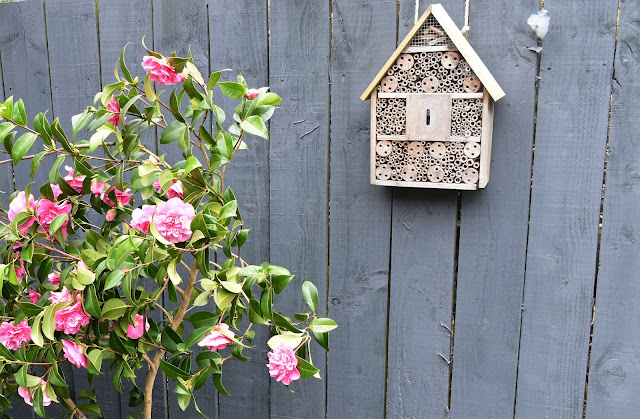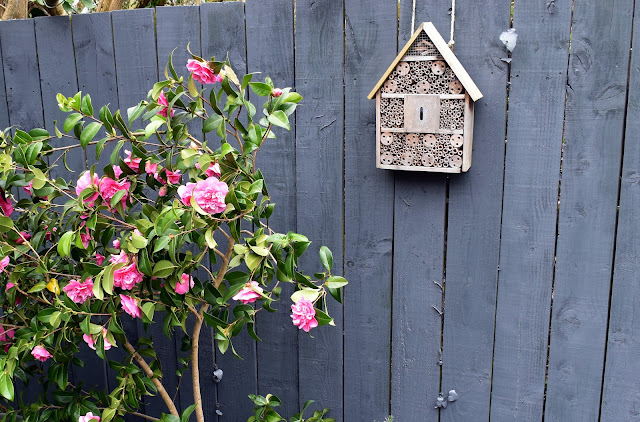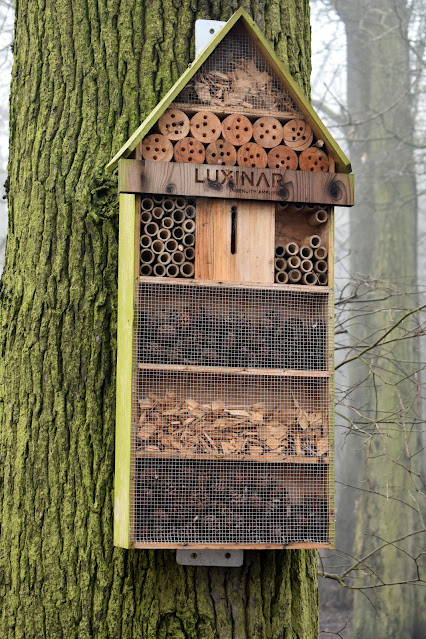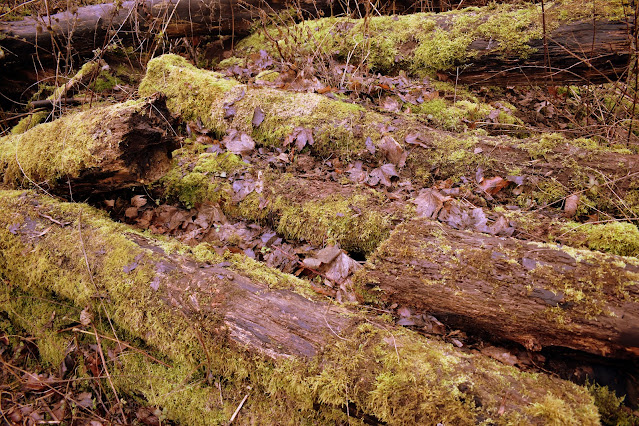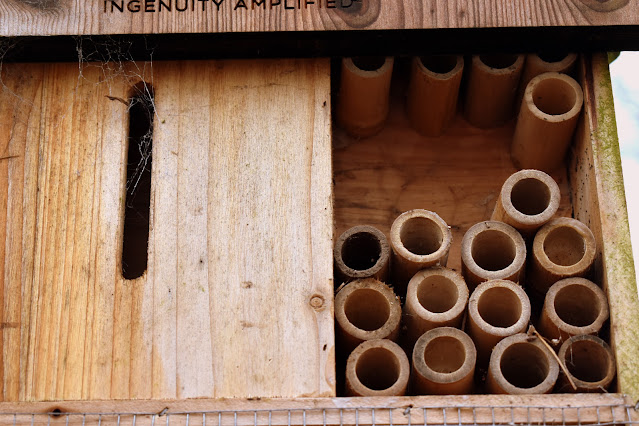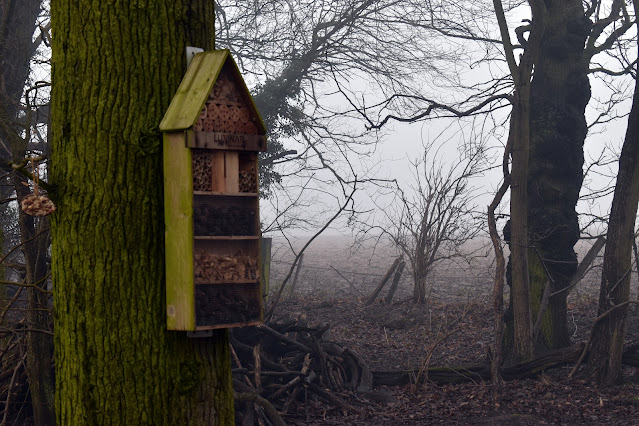How to Kill a Wasp Nest Behind the Bricks of Your House (What Actually Worked for Me)
Every morning, I sit outside with my coffee and enjoy a bit of peace and quiet on my backyard swing. One morning, I noticed something odd: a steady stream of wasps flying in and out of a small crack between the bricks on the back wall of our house. And not just once—this happened every day, especially when the morning sun was beating down on that area.
At first, I thought it was just a few scouts. I grabbed some peppermint-scented water (which I'd read could deter them) and gave the area a good spray. Nope. That didn't work. The wasps kept coming—more and more every day. I knew it: there was a nest forming inside the wall. Time to take this seriously.
The Entry Point Is Everything
One thing I quickly realized—and I want to highlight this for anyone else dealing with wasps in the wall—is that you must find the entry point. I could see precisely where the wasps were flying in and out, and that made all the difference. If you don't know where they're entering, you'll need to spend some time observing their flight path. It's absolutely critical.
And here's what not to do (yes, I learned the hard way): Don't plug the hole.
At first, I thought, "Well, let me just plug the crack so they can't get back in. That'll stop the problem, right?" Nope. Big mistake! Huge!
When I temporarily sealed the hole, about 20 wasps showed up in full-on panic mode, trying to get in. They were confused and aggressive.
I did some fast reading and found out that sealing up an active wasp nest is a terrible idea—because they'll just find another way out. They've been known to chew through tar paper and even wood to escape.
That was enough for me. I unplugged the hole and got serious about a real solution.
Why I Chose Pyrethrin Insecticide Dust (And Availability Notes)
When researching the best insecticide dusts to treat a wasp nest in a wall, I came across several recommended options.
However, as I began looking for them online, I noticed something important: many of the most recommended products weren't showing up on Amazon USA. Whether that's a temporary availability issue or a distribution limitation, I'm not sure.
Since I live in Canada, I purchased pyrethrin insecticide dust from Amazon Canada, because it was the only product from the recommended list that I could actually find and buy at the time. It wasn't cheap, but honestly, it was absolutely worth it. It worked fast and effectively.
If you're in the U.S., you might still be able to find pyrethrin dust or other recommended insecticide powders at your local hardware or garden store—even if they don't appear on Amazon USA.
The key is finding an insecticide dust, not a spray, because the dust gets tracked back to the nest and to the queen. It's what makes the method so effective for hard-to-reach, hidden nests, such as those in walls or behind brick.
How the Insecticide Dust Works
What I loved about this solution is how the dust works: when the wasps enter and exit, they can't help but touch it. Their wings, legs, and bodies pick up the fine powder, and when they return to the nest, they bring it with them. Eventually, it reaches the queen and the rest of the hive, affecting their nervous systems and eliminating the entire colony.
I only sprayed once. I assumed I'd need to repeat the process 24 to 48 hours later, but I didn't—it worked in 24 hours. That was it. The activity stopped completely.
Why This Method Worked for Me
Here's why I think this method worked so well:
-
The crack was small and direct, so the dust clung to everything inside.
-
The pump sprayer with the long nozzle allowed me to get deep into the crack without needing to see the nest.
-
Pyrethrin dust is potent and fast-acting.
-
I caught the nest in the earlier stages—there was still time to stop it before it got out of control.
And, importantly, this method is excellent for cracks where the nest is not visible, but you can clearly see wasps entering and exiting.
What About Diatomaceous Earth?
For U.S. readers: another product that came up in my research was Diatomaceous Earth (DE)—an organic, earth-based dust. It's widely available in the U.S. and can be a gentler, more natural alternative. However, many sources indicated it may take longer to work and might not be effective for larger nests. I could have purchased it in Canada, but with the urgency of the situation (and my husband being allergic), I chose the faster option.
If you do opt for Diatomaceous Earth, the same application method applies: obtain a pump with a narrow nozzle and apply it directly to the wasps' entry point.
Application Safety Tips
A word of caution: Pyrethrin is a type of insecticide. Even though I was using it five feet up the wall (out of reach of pets), I took all the proper precautions:
-
Wore a mask
-
Wore gloves
-
Put on a heavy sweater
-
Threw my clothes straight into the laundry after the one-minute application
Honestly, the actual spraying took less than 60 seconds—three to four good puffs into the crack, and I was done.
Final Thoughts: Don't Wait Too Long
The longer I let this go, the more wasps appeared. Every day, I could tell the nest was growing. I don't like harming living creatures, but having a wasp nest in the bricks of our house was a safety risk—for us, for pets, and for anyone allergic.
I'm really glad I took the time to conduct thorough research and find a product that is safe, effective, and available in Canada. If you're dealing with the same issue, I hope this helps save you some time and stress.
In short?
✔ Find the entry point.
❌ Don't plug the hole.
✅ Use the right dust and pump. (See the hyperlinks above.).
😌 And in 24 hours, you might just be wasp-free.
TAKE NOTE: Consult a professional exterminator if the wasp nest is too big or the situation is unsafe! In fact, don't attempt this if you're unsure whether it's safe to do so.






